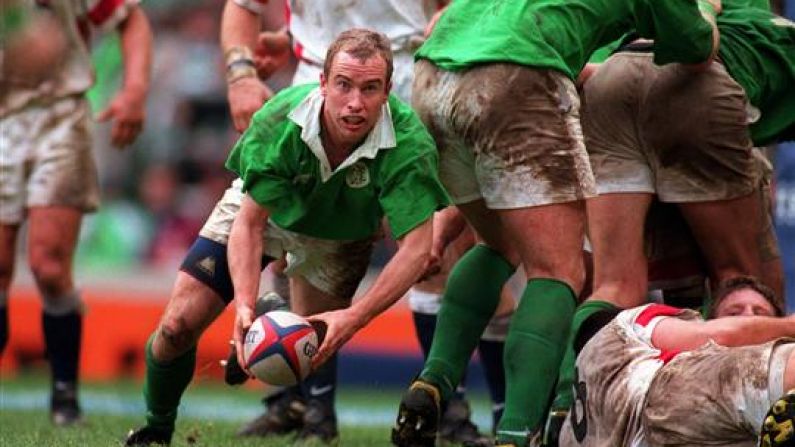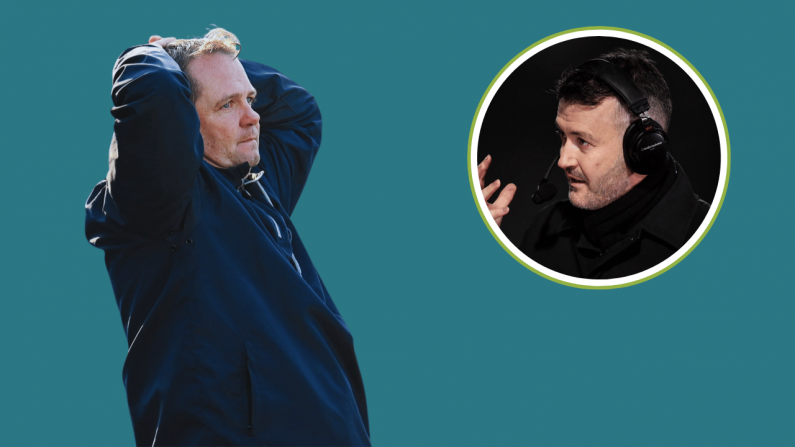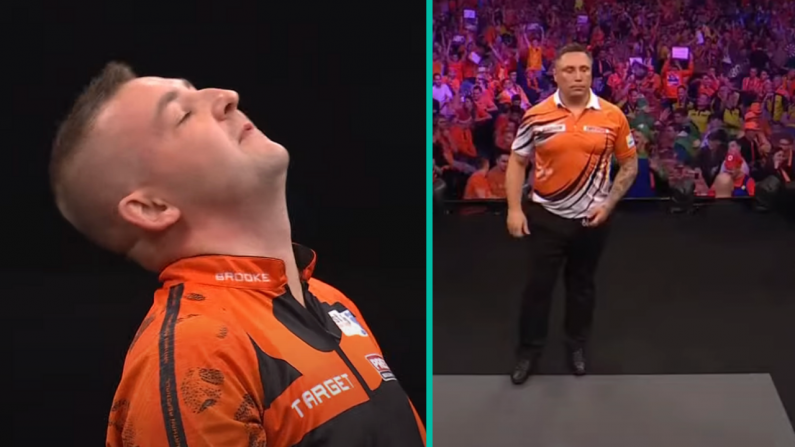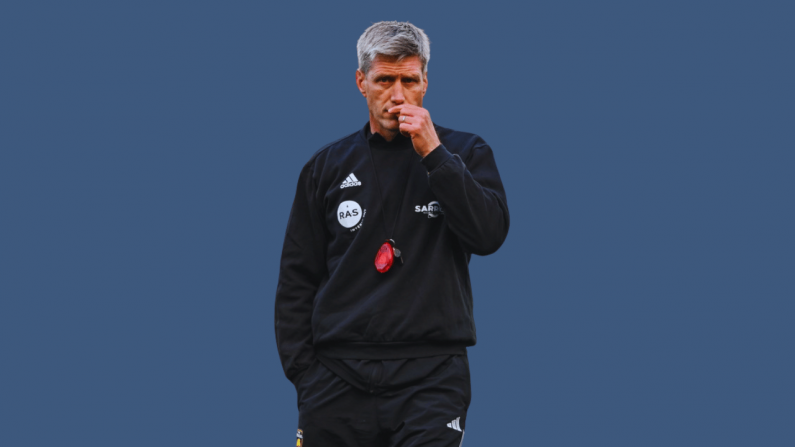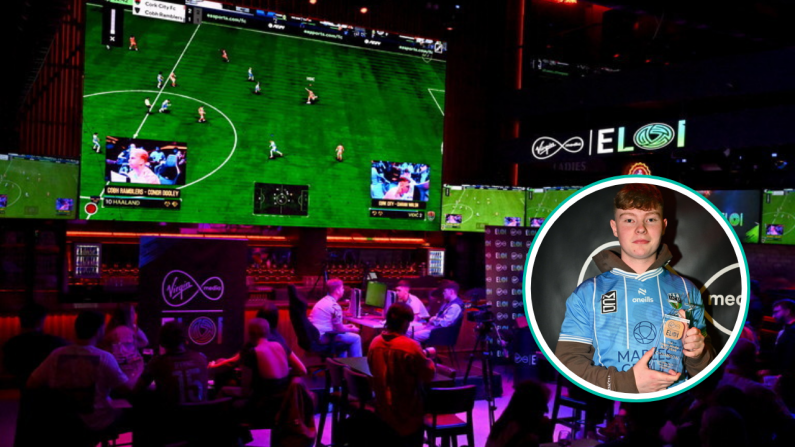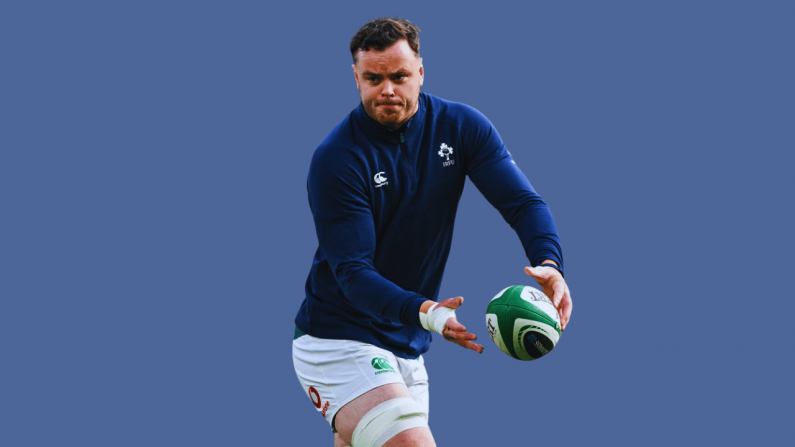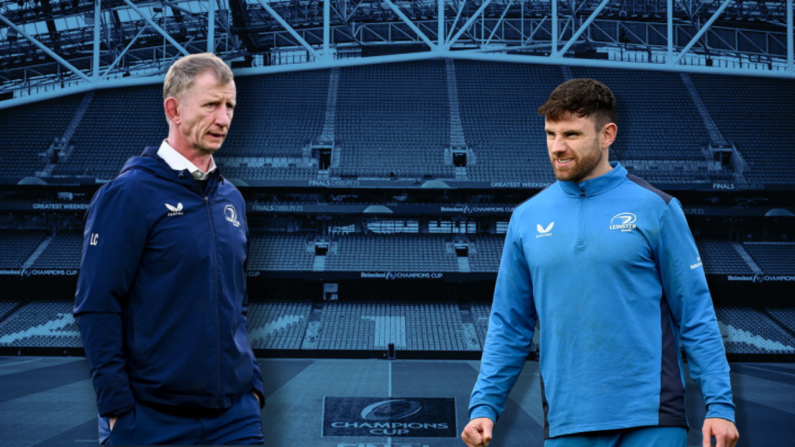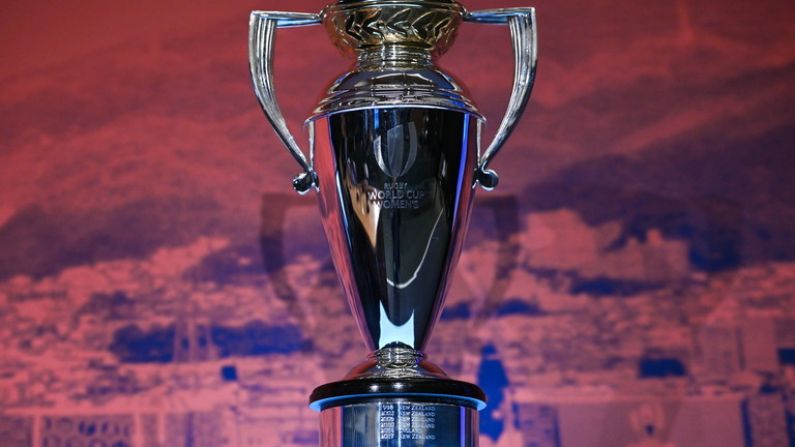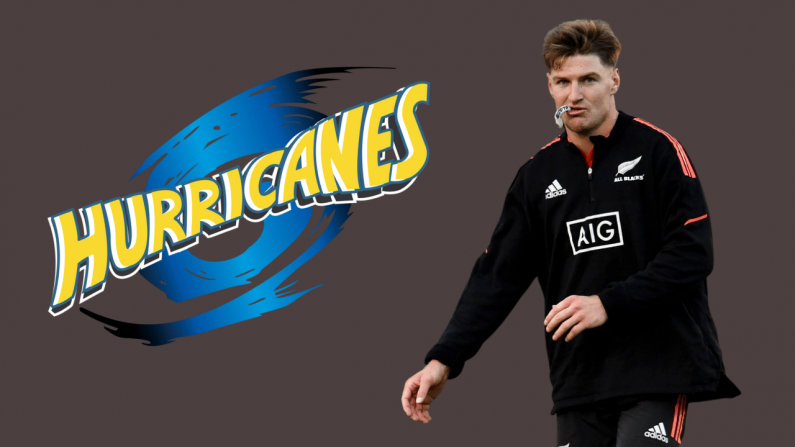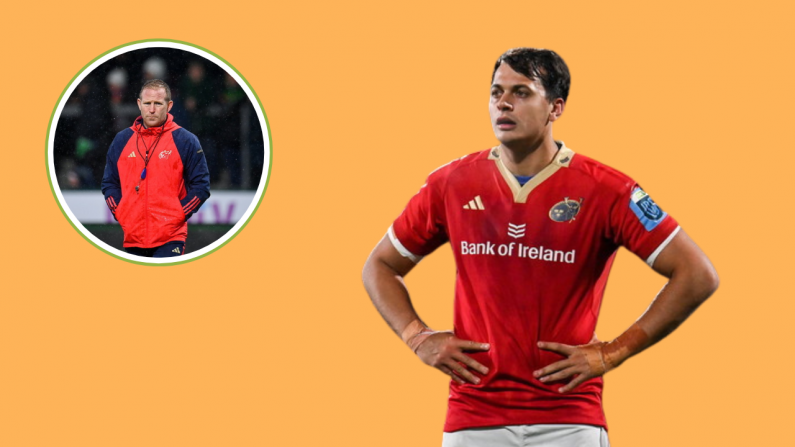How did Ireland's season fare the last time no Irish club made the European Cup quarter-finals? The national team was in rag order, a large crop of the players were based overseas and we were facing into a another tour in South Africa.
The Heineken Cup was in its infancy the last time the quarter finals proceeded without Irish interest.
In the popular mind, the competition only began in 2000 when Munster beat Toulouse in the semi final. Ulster's 1999 triumph, for instance, arriving in a year when the powerful English clubs sulked and opted out, has aged badly. Montage makers frequently leave it out when compiling images of Irish success in Europe.
The 1997-98 Heineken Cup Final belongs definitively to a different era. It was pure 1990s. For one thing, it was won by Bath. A Bath team containing names like Jeremy Guscott, Jon Callard (who scored the only try), Phil de Glanville and Nigel Redman.
The man who, as backs coach, was largely responsible for turning Bath into England's No. 1 team was, by now, the coach of Ireland. A role in which he wasn't having any fun.
WOODEN SPOON
He couldn't get on with the 'amateurs' with whom he was forced to work, he unapologetically favoured England-based players, and he never bothered staying in the apartment the IRFU had purchased for him in Dublin. He even inquired about the possibility of moving the national team training sessions to England.
The appointment of Brian Ashton as Ireland coach was greeted with excitement and not a little intrigue. It was regarded as a stunning coup by the IRFU. Here was Irish rugby really punching above their weight in the coaching sphere.
Following Ireland's home loss to Italy at the start of 1997, the dour and uninspiring Murray Kidd was shown the door and the sensational appointment of Ashton on a six year contract was announced.
As he relayed to Brendan Fanning in From There To Here, even at the time Ashton had misgivings about what he was doing. This feeling deepened at the first training session in Limerick where Ashton learned that several Irish international players couldn't pass the ball from left to right.
According to his assistant coach Mike Brewer, Ashton was 'surprised by the lack of ability, particularly in the backs. I remember after the first week he said to me 'Jesus, I don't know if I've made the right decision here.''
By the time 1997 was out, Ireland would lose to Italy again in a test match in Bologna.
Ashton's relationship with the manager Pa Whelan had grown steadily more rancorous and he was plainly looking for a way out of his contract.
On the surface at least, Irish rugby had arguably never been in worse shape than it was in 1998. In the Five Nations opener, they lost again to Scotland in Lansdowne Road.
In his post-match interview with RTE, Ashton divested himself of responsibility for the performance, remarking, 'I don't know whose gameplan that was out there but it wasn't mine.'
Ireland had a bye week for the second round of games, and the IRFU used to the time to reach an arrangement with their unhappy coach. Ashton would leave and was replaced by Kiwi Warren Gatland, who had done such an admirable job with Connacht.
Gatland's less ambitious gameplan suited the players better and they knuckled down for the trip to Paris. Some of the more optimistic commentators were predicting that they might get within thirty points of the French.
Ireland were routinely hammered in Paris even at the best of times. The French had won the Grand Slam the previous year and were on route to another. On the morning of the game, the French sporting press were compiling lists of the top 10 heaviest defeats in the history of world rugby.
What followed was one of the most stirring Ireland performances of the era. They started well, a detail which Keith Wood, brutally honest as ever, put down to the fact that they were no longer trying anything that they weren't capable of doing.
Halfway through the first half, Denis Hickie intercepted a loose pass on halfway and scampered fifty yards to cross for the try.
He was the first Irishman to score a try in Paris since Freddie McLennan in 1980. In the 45-10 defeat two years earlier, Ireland had scored a seven pointer, but was a penalty try courtesy of Ed Morrison.
They clung onto the lead until the final ten minutes when Raphael Ibanez muscled over the line. When the final whistle arrived, the Irish players slumped to the ground, dismayed at an opportunity lost.
Ireland played poorly in Round 3 and suffered a first loss to Wales in four years, a result which, for all the bravery of Paris, more or less condemned them to a whitewash.
The wooden spoon was confirmed in the final game in a respectable loss in Twickenham. Mercifully, it was only their second whitewash of the decade (Thank God for Cardiff) after 1992.
Still, the press found positives. The afterglow of the surprisingly good show in Paris hadn't quite abated. Their points difference was much superior to the previous year in which they had scraped a one point win in Cardiff and were slaughtered in Murrayfield and by England in Lansdowne Road.
[soundcloud url="https://api.soundcloud.com/tracks/234946517" params="auto_play=false&hide_related=false&show_comments=true&show_user=true&show_reposts=false&visual=true" width="100%" height="450" iframe="true" /]
SOUTH AFRICA
As with 2016, Ireland faced into a summer tour of South Africa.
The South African media were patronising and dismissive. They saw Ireland as a bit of an irrelevance in international rugby rather than a team to be treated with respect. I resented that attitude right from the start.
Paddy Johns (speaking to Tom English in No Borders)
Donal Lenihan's considered opinion was that the Irish team were treated like shit by their hosts. The players were in spikey mood by the time the tests rolled around.
The first test saw the debut of South-African born back-rower Dion O'Cuinneagain. Both his parents were from Wexford and decided to stay in South Africa following their honeymoon. Growing up, O'Cuinneagain felt Irish as much as South African.
He exchanged pleasantries with the South Africans at the first lineout before getting on with it. He told Tom English about the experience in No Borders.
I was standing at the back of the first line-out and their three loose forwards Johan Erasmus, Gary Tiechmann and Andre Venter all shook my hand and wished me luck. Then Venter punched me in the face and I abused his heritage in Afrikans and we carried on from there.
South African debutant Stefan Terblanche scored four tries and Ireland lost 37-13 but Keith Wood did at least manage to get in a serious dig at Gary Tiechmann.
The second test - renamed by posterity as 'The Battle of Loftus Versfeld' - was more of thirty man brawl than a rugby match. Ireland lost the match 33-0 but fortunately enough the game was so violent that the scoreline has been relegated to a footnote.
The Sky commentators were inclined to blame the Irish more for the degeneration into violence. In O'Cuinneagain's estimation, 'South Africa came out to bully us and we weren't in the mood to take a backward step'.
The most serious incidents included Van der Westhuizen kicking Malcolm O'Kelly in the chest, Victor Costello kicking James Dalton, and Dalton himself spitting at Paul Wallace. Trevor Brennan and Peter Clohessy both threw punches.
EXODUS
When I played my first game for Leinster in 1998 there were 300 people in the ground - and I knew most of them. Honestly, you'd be running down the touchline and saying, 'Oh, there's Mum'.
Shane Horgan
Today brought reports that Keith Earls is likely to reject the offer of a new Munster contract in favour of a switch to Saracens. Yesterday brought confirmation that Marty Moore is leaving Leinster for Wasps, while Ian Madigan's move to Bordeaux was confirmed some time ago.
The financial muscle of the French and English clubs following the competitions reforms two years back have sparked fears of another exodus as the Irish provinces struggle to keep pace.
In the years after professionalism, many thought it inevitable that the best Irish players would end up playing club rugby in England.
In 1995, Leinster made their Heineken Cup debut with a narrow victory over the Silvio Berlusconi owned outfit in a pokey little ground in Milan. Three years later, their most highly rated players from that campaign - Conor O'Shea, Malcolm O'Kelly, Paul Wallace, Niall Woods - were all playing club rugby in England.
The AIL was still the flagship competition of the Irish domestic scene. The Celtic League hadn't been established and the inter-provincial championship was still a quaint wintry irrelevance.
However, the provincial scene was to prove the salvation. The following year, the IRFU launched an ambitious and reasonably expensive 'bring them home' campaign. It was believed essential to the prospects of the national team that the players were based in Ireland.
This strategy proved wildly successful.
In the 1999-00 season, Munster, always capable of upending the odd English monster in Thomond Park, defeated Saracens both home and away in the group phase, beat Stade Francais in a home quarter-final, and then took down Toulouse in the semi-final, the game that first alerted the wider public to the magic brewing down in Limerick.
In that year's Six Nations, Ireland were slaughtered in the opening match in Twickenham. The rugby public were braced for more of the same.
Warren Gatland had decided to resign if Ireland failed to beat Scotland in Lansdowne Road. In a desperate gamble, he tossed a glut of Munster players into the mix. Ronan O'Gara, Peter Stringer and John Hayes all made their debuts. Ireland beat Scotland for the first time in twelve years and a new phase was about to begin.
Read more: The Exodus Goes From Bad To Worse As Keith Earls Looks Set To Depart Munster
Read more: Balls Remembers: A Profile Of The First Leinster Heineken Cup Team In 1995

